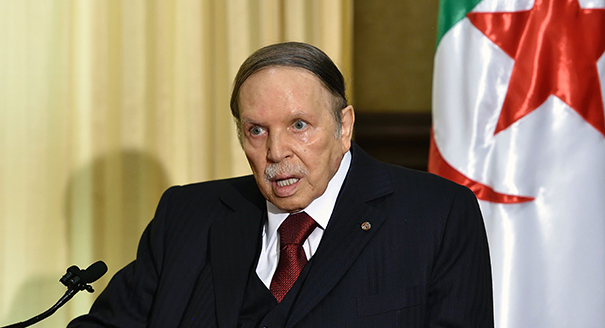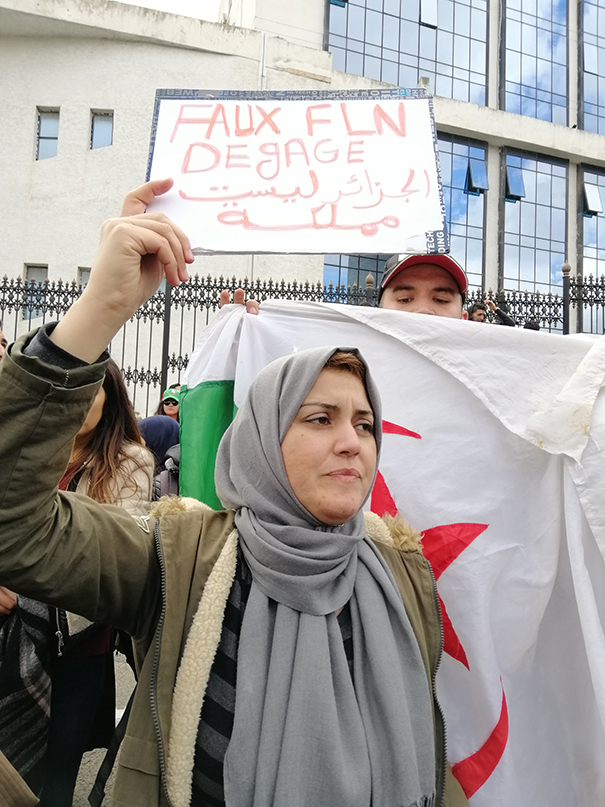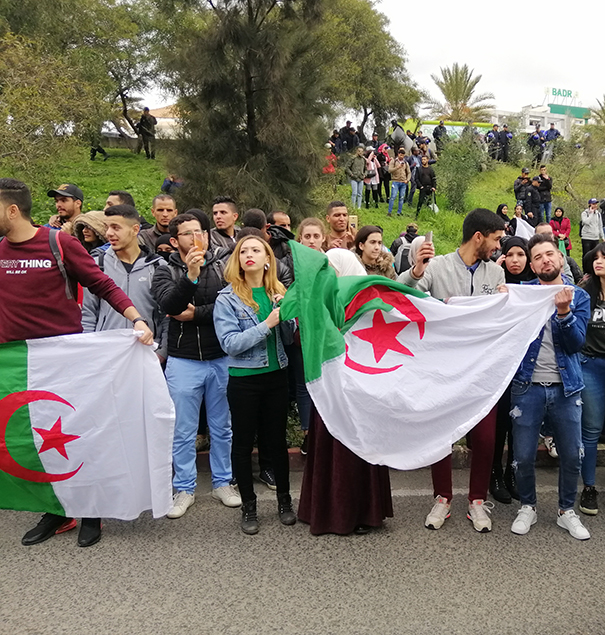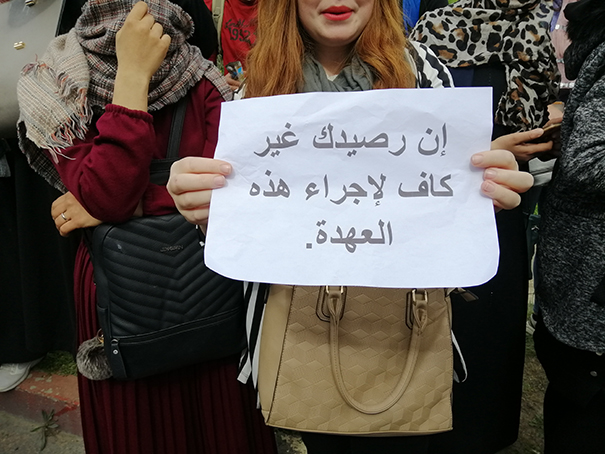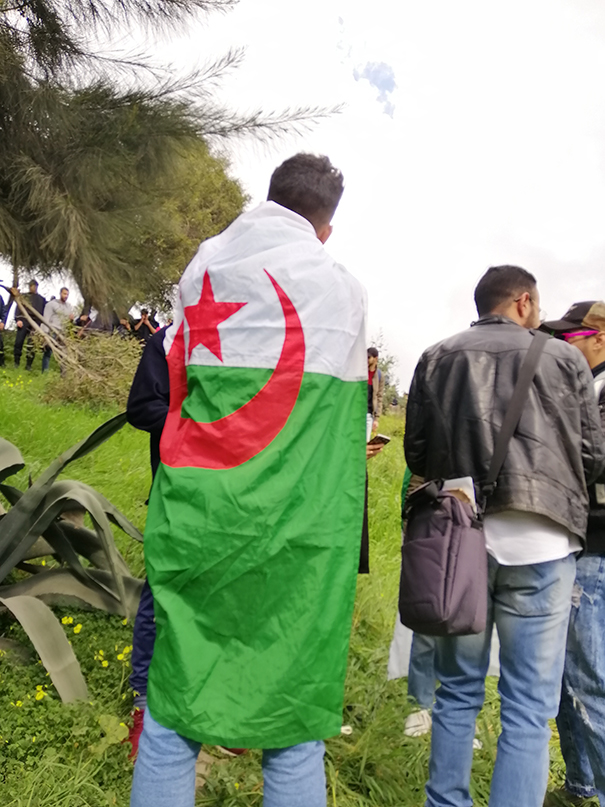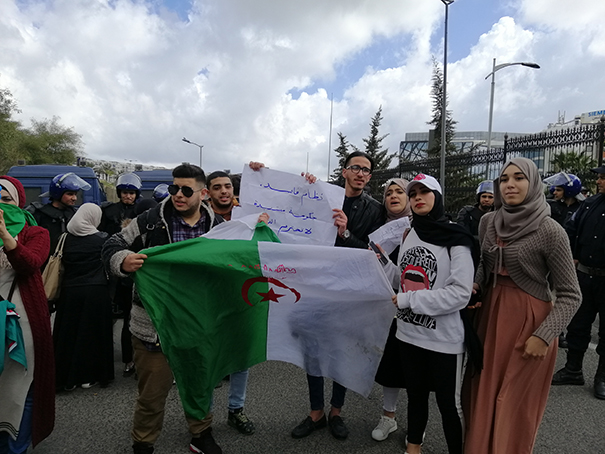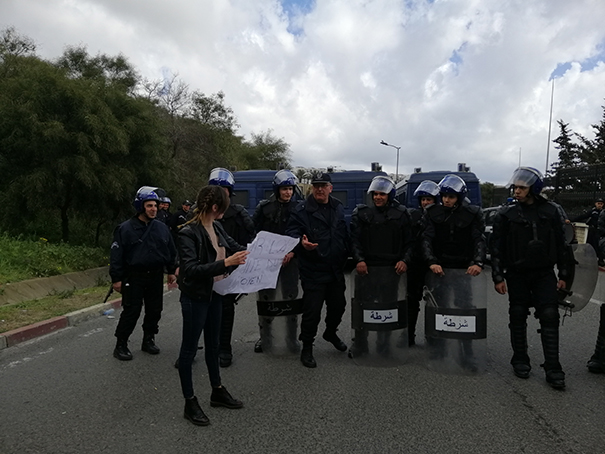Carnegie’s Dalia Ghanem is currently in Algiers, where she has been following the ongoing protests in the country against a fifth term for the ailing president, Abdelaziz Bouteflika. Diwan spoke with her to get a sense of the mood in Algeria and determine whether the protests may extend to other matters. The photographs in this interview were taken by Ghanem earlier this week.
Michael Young: What is new, if anything, in the protests against a fifth term for President Abdelaziz Bouteflika?
Dalia Ghanem: We are seeing a unique sequence of events that we have not seen since the 1990s. The protests remind me of those to which my mother used to drag me during the 1990s. They are different because of the nature of the demands, but also because of their persistence and capacity to mobilize. Algerians are not pushing for socioeconomic demands, but for political ones. They have one demand in particular: that Abdelaziz Bouteflika not stand for a fifth term. The president has been in power since 1999, is sick, and has been unable to speak to his people for six years. Protesters I saw held up one amusing sign that expressed their feelings best: “We refuse to be governed by a frame,” in reference to the framed photographs of the president that officials have placed at campaign events because Bouteflika was unable to be present in person.
MY: What was the mood among the protesters you saw?
DG: The determination of the protesters has been striking. I marched with students on February 26 in Ben Aknoun University and they were resolute and proud to march for their country and to have regained their dignity. Salima, who is 22 years old, was among many who were holding up a sign reading, “Give dignity back to the Algerian citizen.”
There was anger as well. Protesters are fed up with being represented by a president who has been unable to run the country because he is extremely sick. They want what they call “Bouteflika’s gang” to leave. Their slogans have been interesting, smart, subtle, and sometimes funny. Protesters have chanted, “Algeria is a republic, not a monarchy,” “Bouteflika Out,” “Bouteflika, you do not have enough credit left in your account to proceed with this [fifth] mandate.” In addition, the relationship with the security forces has been friendly, if I may say. The security forces have avoided violence and protesters have insisted on the peaceful nature of their actions. They have repeatedly intoned “Silmiya, silmiya,” or “Peaceful, peaceful,” and they have chanted “Shorta wa shaab, khawa khawa," or “The police and the people are brothers.”
MY: Might the protests develop into something broader?
DG: For now the protests are focused on preventing a fifth term for Bouteflika. I did not hear protesters demanding anything else. Algerians have numerous grievances, however, so this might change with time. If they remain focused, mobilized, and their demands remain clear, the protests might change and become a successful social movement. First, they need to remain focused on one defined purpose, namely rejecting a fifth term for Bouteflika. Second, they need to continue mobilizing different actors in the social spectrum, as they have done so far, such as the unemployed, lawyers, students, etc. Finally, their tactics need to remain peaceful and good natured to convince more people to join them, or to ensure that those protesting now remain. Any kind of violence would turn off those already participating and those who still have to be convinced to join the protests, and will make it hard for the protesters to gain support.
MY: How is the military likely to react to the protests?
DG: That is a very hard question to answer. Until now the military command has remained silent. I cannot imagine that it will shoot at protesters. It does not want to repeat the errors of October 5, 1988, when the authorities fired on demonstrators protesting against socioeconomic conditions. Repeating this would be a terrible mistake and would be self-destructive. I believe that neither the people nor the political leadership or the military will go that far. I also believe that the military may have to accept the people’s demands, especially if the protests continue and indeed spread. Those who hold power in Algeria may have to sacrifice Bouteflika in order to ensure that the country remains stable, but above all to ensure the continuity of the system they have put in place.

